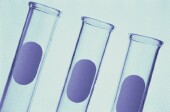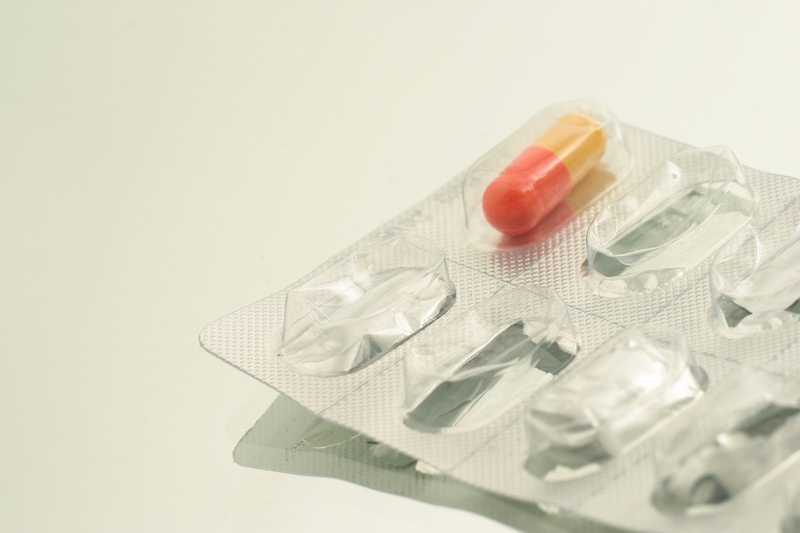
WEDNESDAY, Sept. 11 (HealthDay News) — Symptoms of so-called “andropause” — the male equivalent of menopause — may be triggered not only by declines in testosterone, but in the “female” hormone estrogen as well, a new study suggests.
Experts said the study, published in the Sept. 12 issue of the New England Journal of Medicine, deepens researchers’ understanding of the hormonal shifts that occur as men age.
And it’s more complicated than those ads about “low T” and testosterone supplements might lead men to believe.
Instead, researchers found, there is no black-and-white cutoff for “low” or “suboptimal” testosterone. Different symptoms crop up at different testosterone thresholds: Muscle mass and strength do not decline until testosterone drops quite low, whereas libido may dampen with relatively small dips in the hormone.
“The question that patients always have is, ‘What’s a normal testosterone level?'” said Dr. John Amory, a professor of medicine at the University of Washington in Seattle, who was not involved in the study.
“Well, now I’m going to ask, ‘What endpoint are you talking about?'” Amory said. “Different functions of testosterone start to deteriorate at different levels.”
What’s more, the study shows that men’s functioning can be impaired not only by a loss of testosterone, but estrogen as well, according to lead researcher Dr. Joel Finkelstein, associate director of the Bone Density Center at Massachusetts General Hospital in Boston.
A small amount of the testosterone men produce is converted into estrogen in the body, so that hormone also declines as men get older.
And in this study, estrogen and testosterone loss both affected men’s libido and erectile function. And it was the loss of estrogen, in particular, that appeared to promote body fat gain.
That might sound surprising, since women — who produce much more estrogen than men do — typically have more body fat. But Finkelstein said it’s known from lab research that when male rodents’ estrogen receptors are “knocked out,” the animals “get fat.”
So what does this all mean to men? Amory said that the “elephant in the room” remains: Doctors still don’t know whether testosterone supplements actually do more harm than good.
And that’s a major issue, both Amory and Finkelstein said. Testosterone deficiency is diagnosed in millions of men each year, and in the United States, prescriptions for testosterone shot up 500 percent between 1993 and 2000 alone.
Right now, the definition of “low” varies, depending on the lab doing the testing, according to Amory.
But on average, testosterone levels below 300 nanograms per deciliter (ng/dL) are considered low, Finkelstein said — and it’s a sort of one-size-fits-all definition. “One of the goals of this study was to do better than that,” he said.
To dig deeper, his team recruited 400 healthy men between the ages of 20 and 50. All of them took a drug that suppresses natural testosterone and estrogen production. Then, half of them used different doses of testosterone gel or an inactive placebo gel for 16 weeks. The other half used those gels plus a medication that blocked their testosterone from being converted into estrogen.
That way, the researchers were able to pinpoint the levels at which testosterone loss spurred particular symptoms — and whether estrogen played a key role in any of those problems.
In general, they found, increases in body fat and a waning interest in sex started to emerge at mild levels of testosterone deficiency. But muscle loss and erectile dysfunction were not seen until testosterone dropped lower — around 200 ng/dL or below.
Finkelstein agreed that none of this answers the big question of whether testosterone replacement is a good thing. And the researchers still need to see whether their findings hold true in men older than 50 as well.
“This study is a step along the way in our understanding,” Finkelstein said. “I would tell men to stay cautious and conservative” about testosterone therapy.
Amory said there are some men who benefit from testosterone therapy, which comes in the form of topical gels, patches and injections, and can cost up to $300 a month.
But they are the men whose testosterone levels are clearly low and causing problems. The difficulty, according to Amory, is when a man has a moderately low “T level” and a vague symptom such as fatigue — which can have many causes.
Testosterone supplements have potential side effects, including acne and prostate enlargement. But maybe the biggest worry is that the long-range health effects are unknown.
“If a man asks me if this will raise his risk of heart disease 10 years from now, all I can say is, ‘I don’t know,'” Amory said. “We’re flying a bit blind on this.”
He and Finkelstein both pointed to the story of hormone replacement in women as a cautionary tale. Doctors once widely prescribed estrogen and progesterone to women as a way to ward off heart disease — until a large U.S. trial found that older women given the hormones actually faced increased risks of blood clots, heart attack, stroke and breast cancer.
“We haven’t had an analogous study in men yet,” Amory said.
More information
The Urology Care Foundation has more on low testosterone.
Copyright © 2026 HealthDay. All rights reserved.

